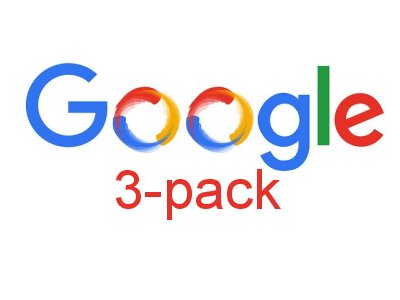
In the realm of modern business, advertising stands as a cornerstone of success. However, for small businesses operating on limited budgets, the challenge lies in crafting advertising campaigns that yield a high return on investment (ROI) without significant financial strain. Fortunately, there are affordable tactics available that can empower small businesses to create effective ad campaigns. In this article, we will explore six such tactics, each tailored to help small businesses maximize their advertising ROI.
1. Leverage Social Media Advertising
Social media platforms provide a cost-effective means for small businesses to connect with their target audience. Platforms like Facebook, Instagram, and Twitter offer powerful advertising tools that enable precise demographic, interest-based, and behavioral targeting. By focusing on a well-defined audience, you can ensure that your ad budget is spent efficiently, reaching those most likely to convert into loyal customers. Moreover, social media advertising offers budget-friendly options, allowing you to set daily or lifetime spending limits, granting you control over your expenses.
2. Invest in Content Marketing
Content marketing represents a potent and cost-efficient strategy for enhancing brand visibility and driving organic traffic. Creating valuable blog posts, videos, or infographics that resonate with your audience can establish your business as an authority within your industry. Over time, this can lead to increased organic traffic and higher conversion rates. Be sure to optimize your content for relevant keywords to enhance its visibility in search engine results.

3. Explore Pay-Per-Click (PPC) Advertising
Pay-Per-Click (PPC) advertising, such as Google Ads, empowers businesses to display their ads to users actively searching for products or services. The beauty of PPC lies in the fact that you only pay when someone clicks on your ad, making it an exceptionally efficient way to allocate your budget. Effective keyword research and precise ad targeting are paramount for success in PPC advertising. With the right strategy, small businesses can compete effectively in this space.
PPC advertising offers several advantages beyond its cost-efficiency. It provides valuable insights into your audience’s behavior, allowing you to refine your marketing efforts continuously. By analyzing which keywords and ad copies perform best, you can optimize your campaigns for maximum impact. Additionally, PPC allows for A/B testing, enabling you to experiment with different ad elements, such as headlines, images, and call-to-action buttons, to determine what resonates most with your audience. These data-driven insights can be invaluable for shaping not only your PPC campaigns but also your overall marketing strategy.
4. Harness the Power of Email Marketing
Email marketing remains a cost-effective and high-ROI advertising tactic. Building and nurturing an email list provides you with a direct line of communication to your customers. Craft engaging email campaigns that deliver value to your subscribers, whether through exclusive discounts, informative newsletters, or personalized product recommendations. Email marketing allows you to segment your audience for targeted messaging, enhancing the likelihood of conversions.
5. Collaborate with Influencers
Influencer marketing can be a budget-friendly approach to reach a broader audience. Identify influencers in your niche or industry who align with your brand values. They can assist in promoting your products or services to their engaged followers. While larger influencers may come with a higher price tag, micro-influencers with smaller followings often offer more affordable partnership opportunities and may have a more devoted and niche audience.
6. Embrace User-Generated Content
User-generated content (UGC) consists of content created by your customers or fans. Encourage your customers to share their experiences with your products or services on social media using a branded hashtag. Repost and share this content on your own platforms to build trust and authenticity. UGC not only costs nothing to produce but also serves as potent social proof, influencing potential customers’ purchasing decisions.
User-generated content takes various forms, including customer reviews, testimonials, photos, videos, and written narratives. It thrives on the authentic voices of satisfied customers, showcasing real experiences and genuine endorsements. UGC offers a unique opportunity for small businesses to connect with their audience on a personal level, as it highlights the positive impact of your products or services on their lives.

To encourage UGC, consider launching contests or campaigns that invite customers to share their stories or creative content related to your brand. Reward participants with incentives such as discounts, free products, or recognition. By actively engaging your customer base and showcasing their content, you not only harness the power of authentic promotion but also foster a sense of community around your brand.
Conclusion
In summary, small businesses can create high-ROI ad campaigns without straining their budgets by implementing six cost-effective strategies: leveraging social media advertising, investing in content marketing, exploring PPC advertising, harnessing email marketing, collaborating with influencers, and embracing user-generated content. Success in advertising requires flexibility, experimentation, and continuous optimization to cater to the unique needs of your business and audience. By wisely utilizing these affordable tactics, small businesses can tap into the power of digital marketing, efficiently reach their target audience, and achieve substantial returns. In this evolving advertising landscape, efficiency and effectiveness remain crucial, and the key to success lies in adapting to change and pursuing advertising excellence.


